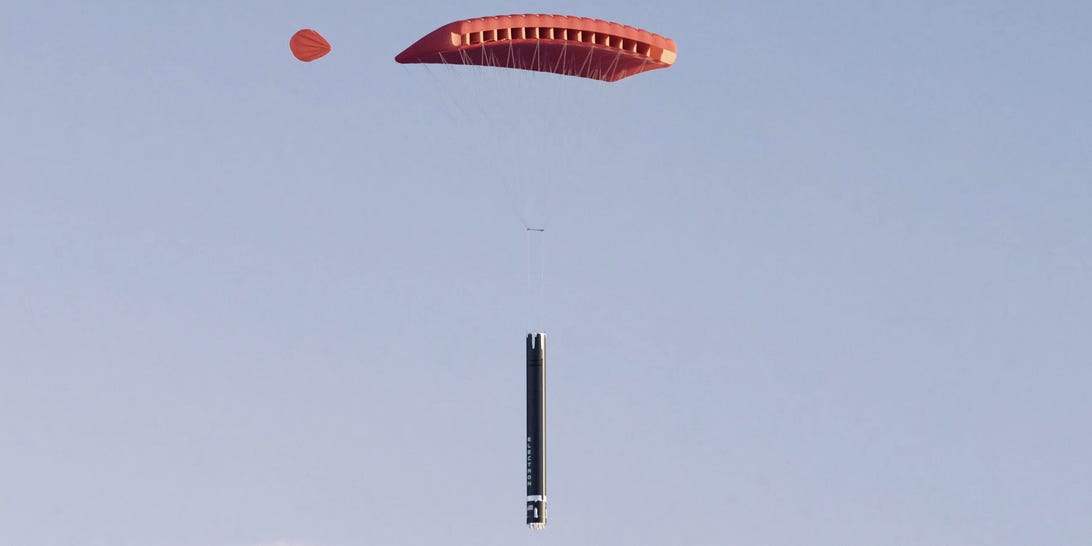
Rocket Lab
Spice up your small talk with the latest tech news, products and reviews. Delivered on weekdays.
“Trying to catch a rocket as it falls back to Earth is no easy feat, we’re absolutely threading the needle here,” said Rocket Lab founder and CEO Peter Beck in a statement.
The attempt will take place during the upcoming “There and Back Again” mission slated to deliver 34 small commercial satellites to orbit as soon as April 19.
The booster will deploy a parachute on its return to Earth, which a helicopter will zip by and pick up.
Space startup Rocket Lab is about to ignite a new debate among space launch fans over which is cooler: landing a rocket on an autonomous droneship in the middle of the ocean, or snagging one out of the sky with a helicopter. Less than three minutes after the Electron rocket launches, its second stage will separate and continue on to boost the payload to orbit while the first stage booster will begin to descend back to Earth at high speed. Two parachutes will be deployed in succession as the rocket nears the surface. This process will slow the booster dramatically from speeds exceeding 5,000 miles per hour (8,000 kilometers per hour) to just 22.3 miles (36 kilometers) per hour.
The New Zealand and US-based company plans to attempt recovering one of its Electron rocket boosters with the help of a chopper to conclude its next mission.
Rocket Lab has successfully snatched rocket replicas using a helicopter, but has yet to grab an actual Electron as it falls back to Earth from a fresh trip to space.
Ultimately, engineers may tell you the SpaceX practice of autonomously landing a rocket returning from orbit softly on a moving target at sea is the more impressive feat, but there’s something to be said for the drama of a human pilot swooping in to hook a rocket that was blazing a trail towards Earth just seconds earlier.
That debate can remain unresolved for now. In the meantime, the attempt is sure to be worth a watch. Rocket Lab will stream the whole thing live and we’ll be sure embed the feed here, and over at CNET Highlights on YouTube, when it’s available.





